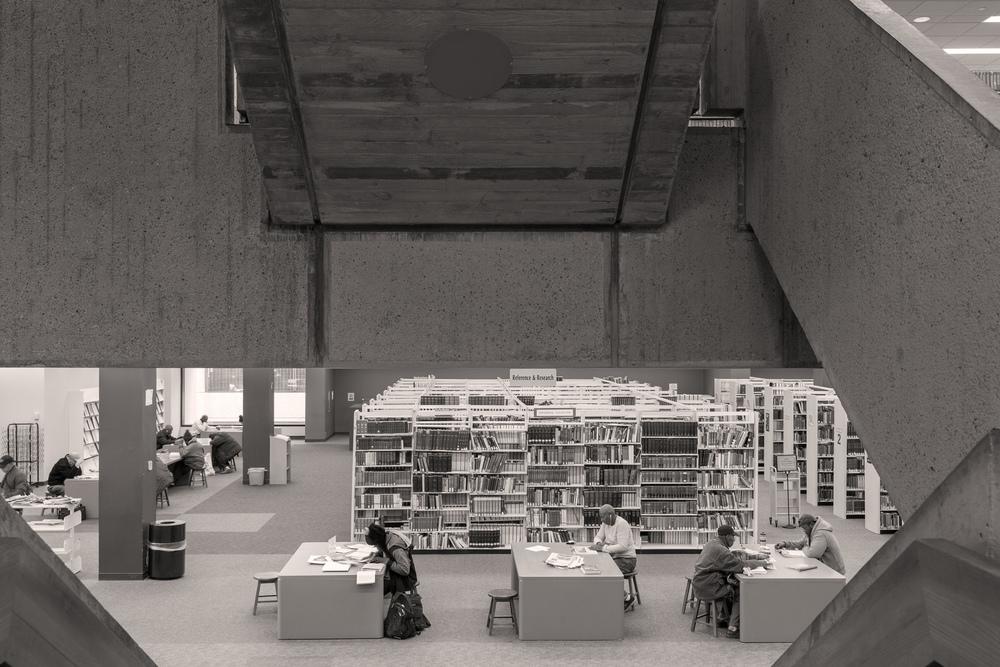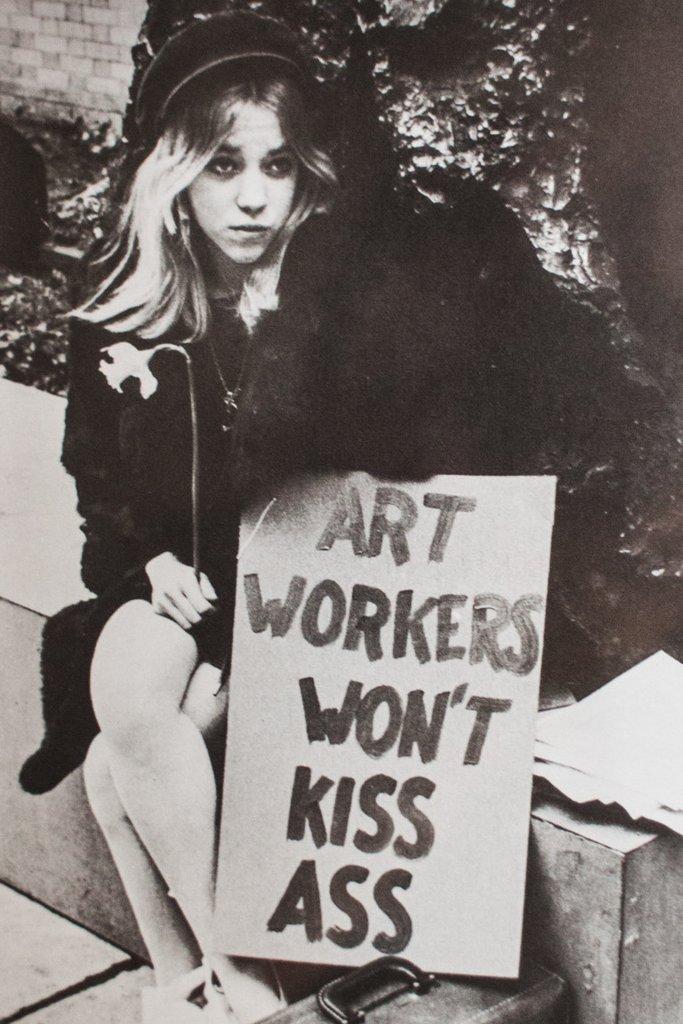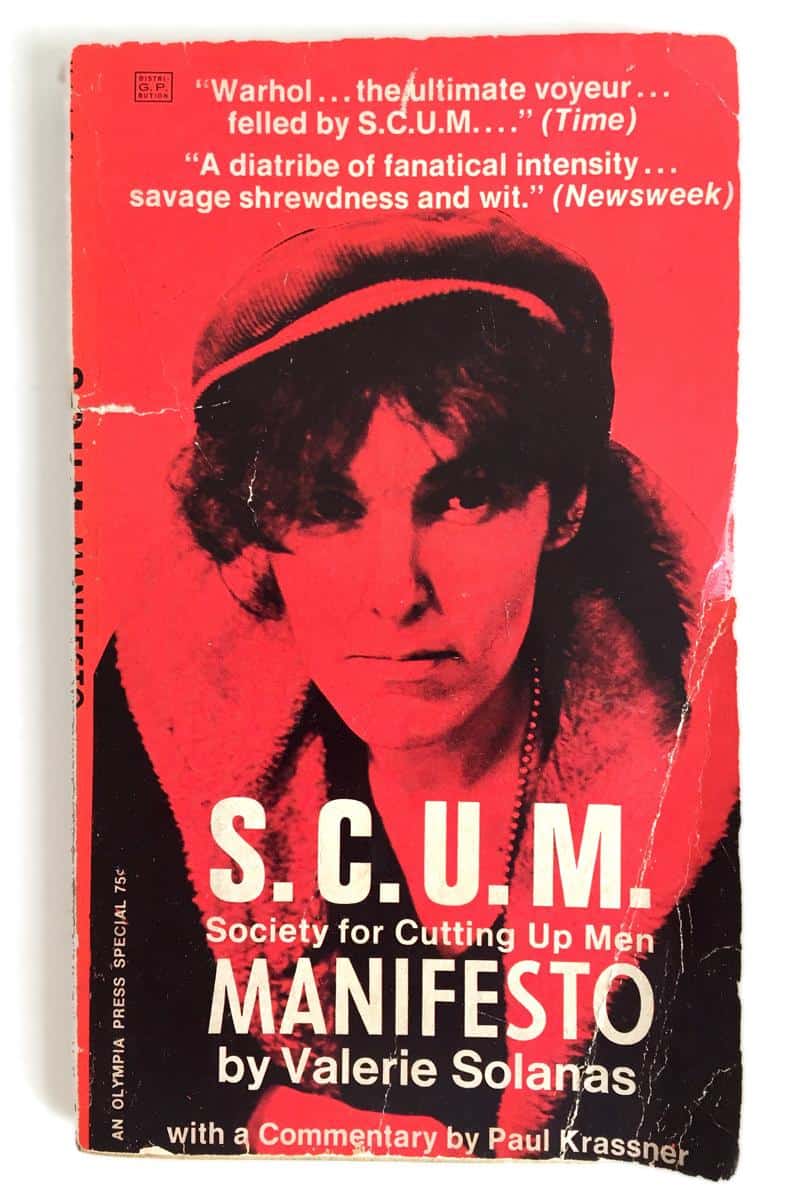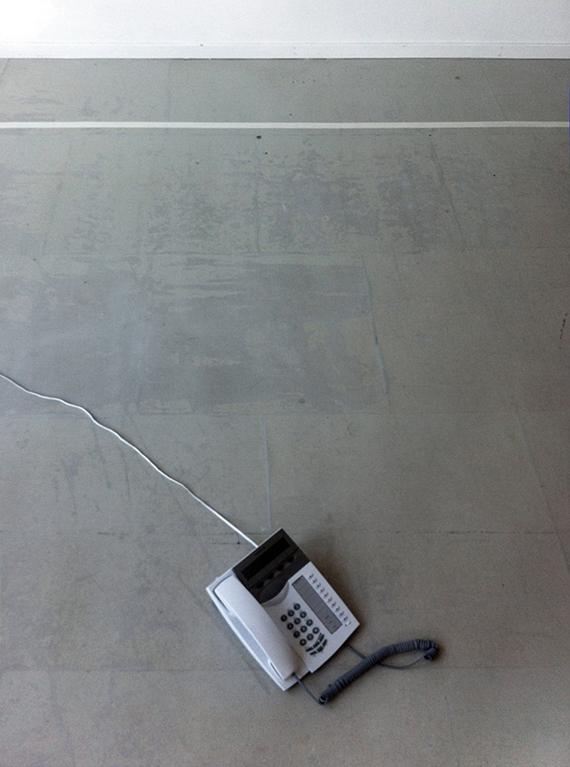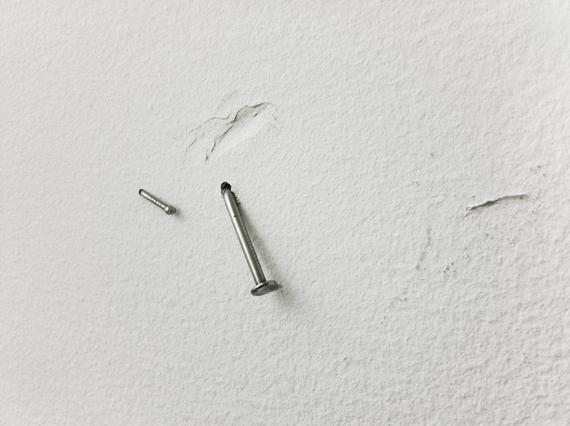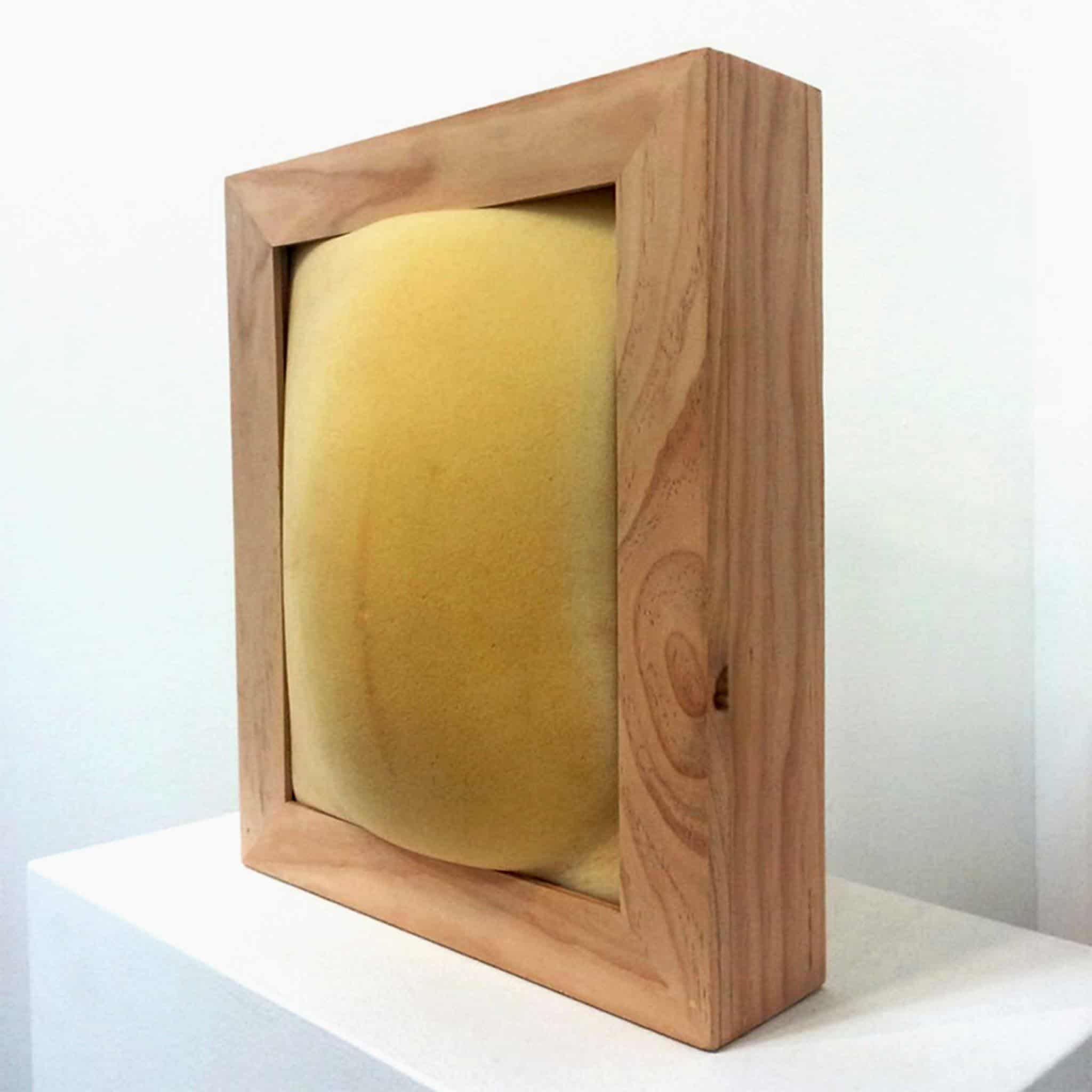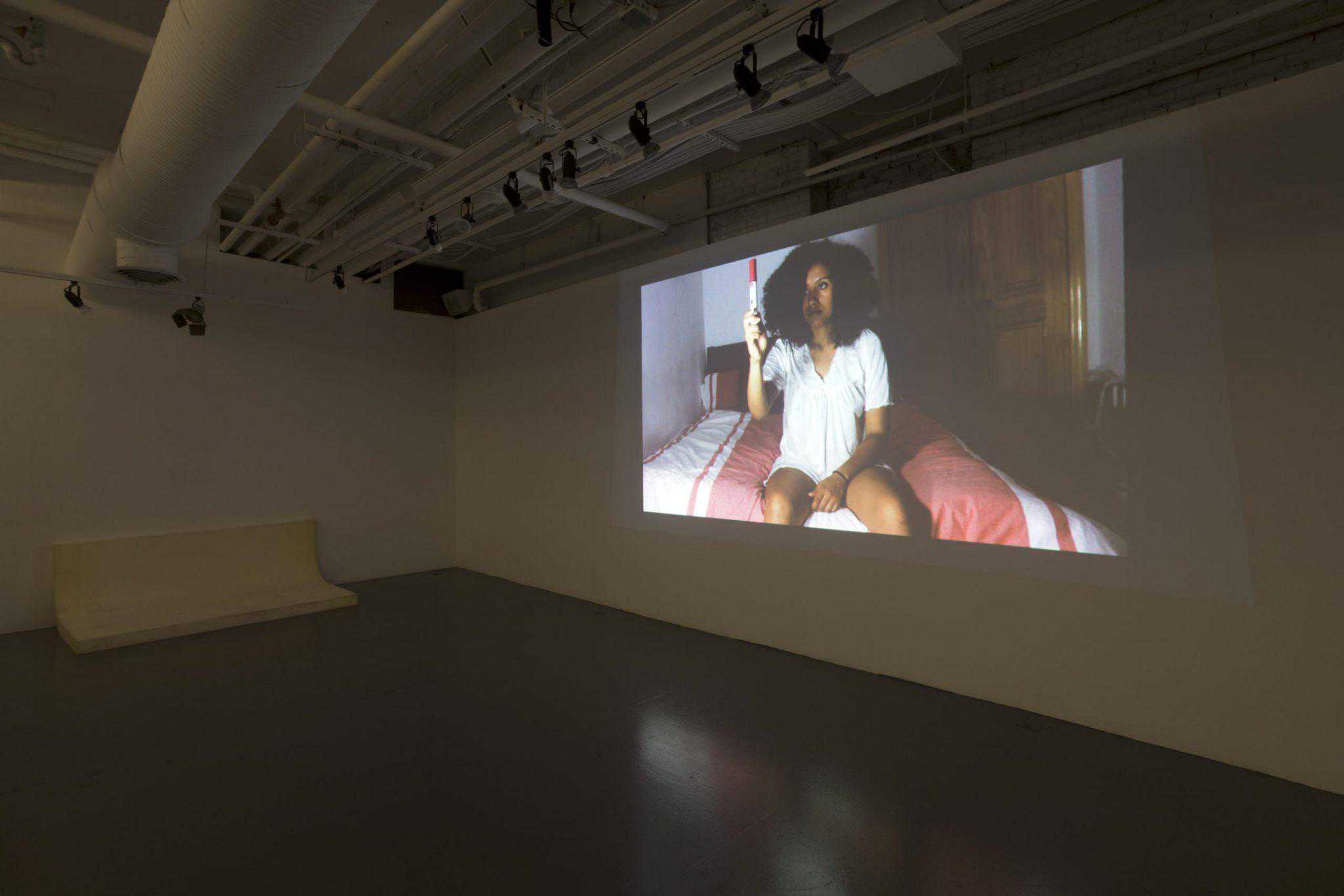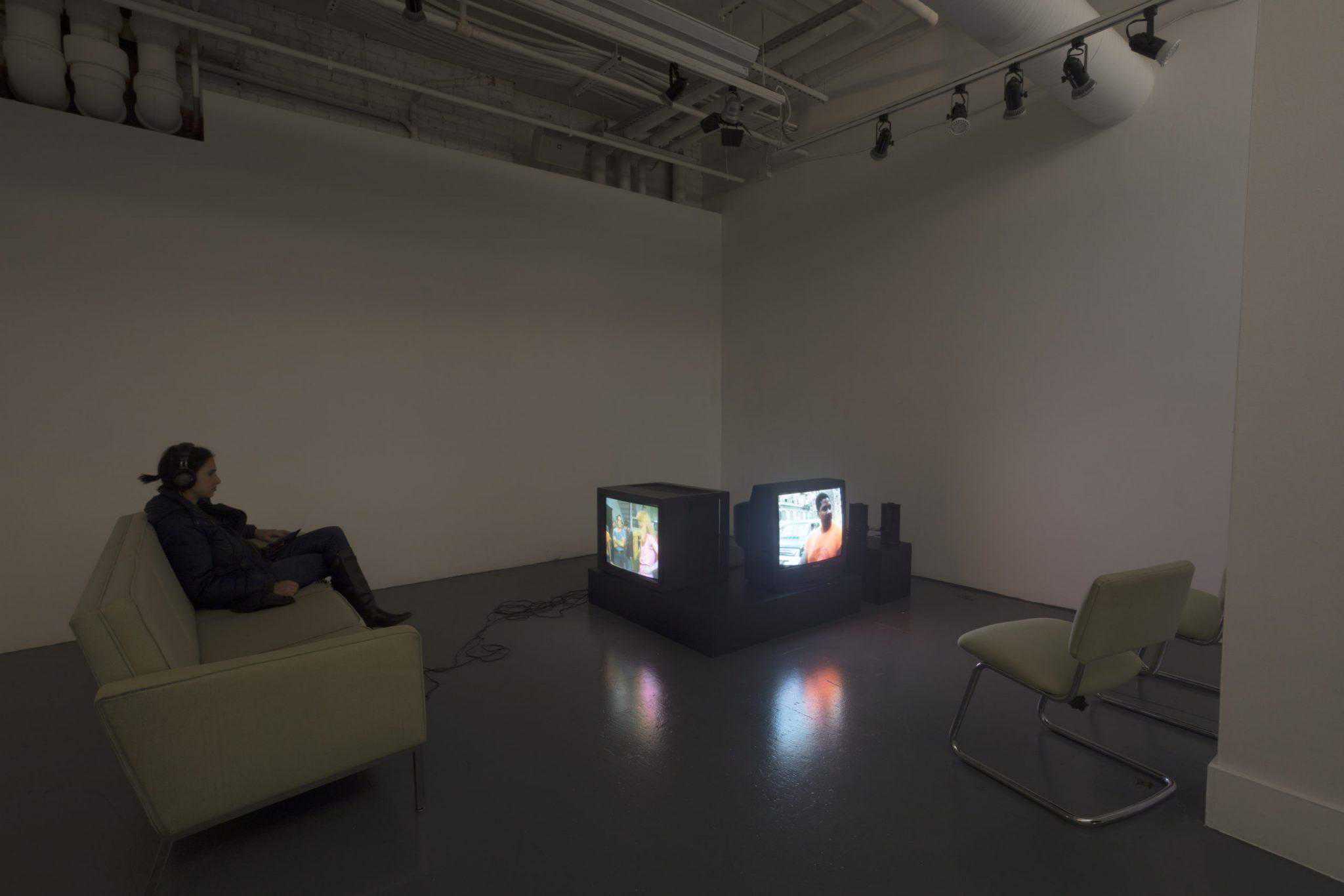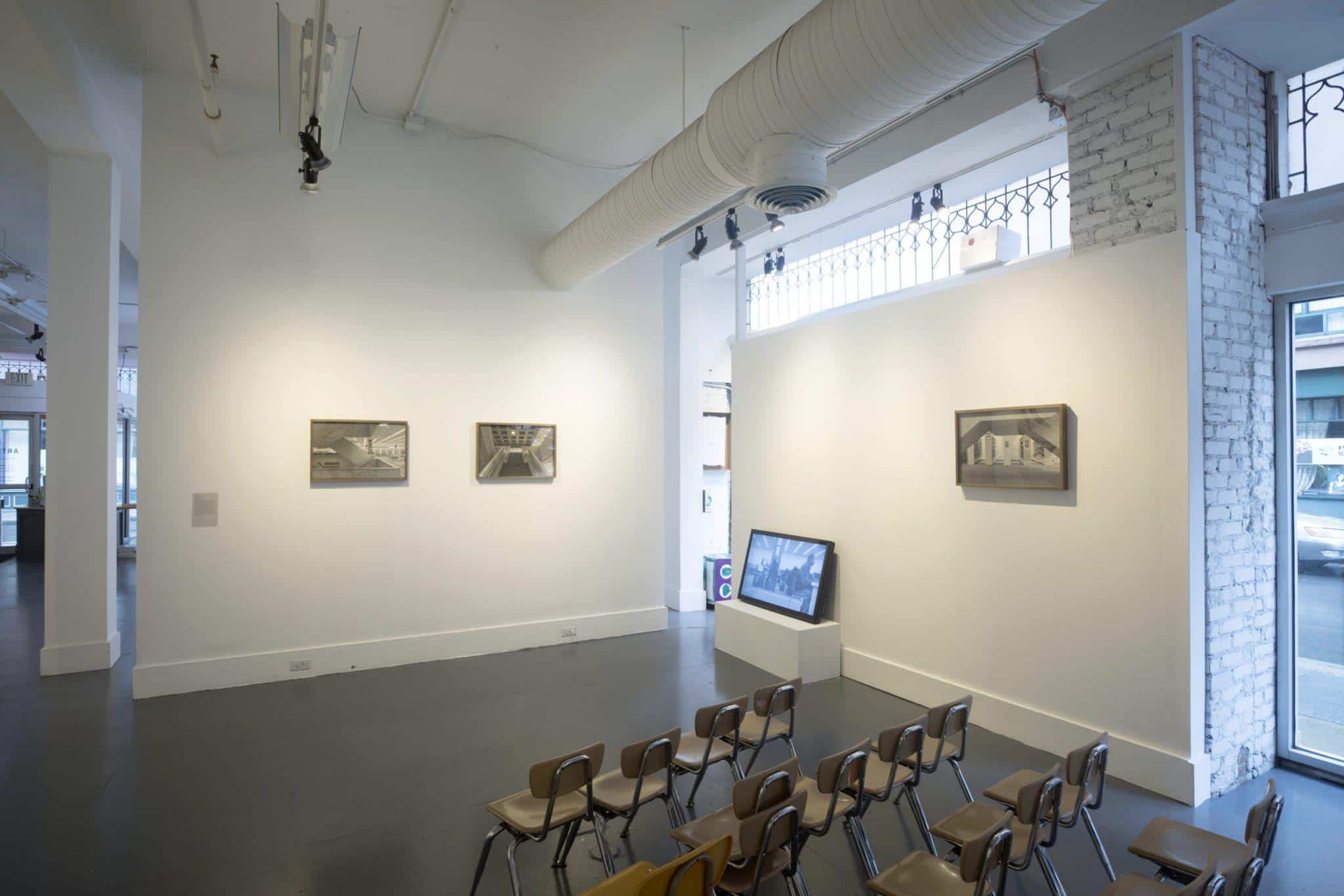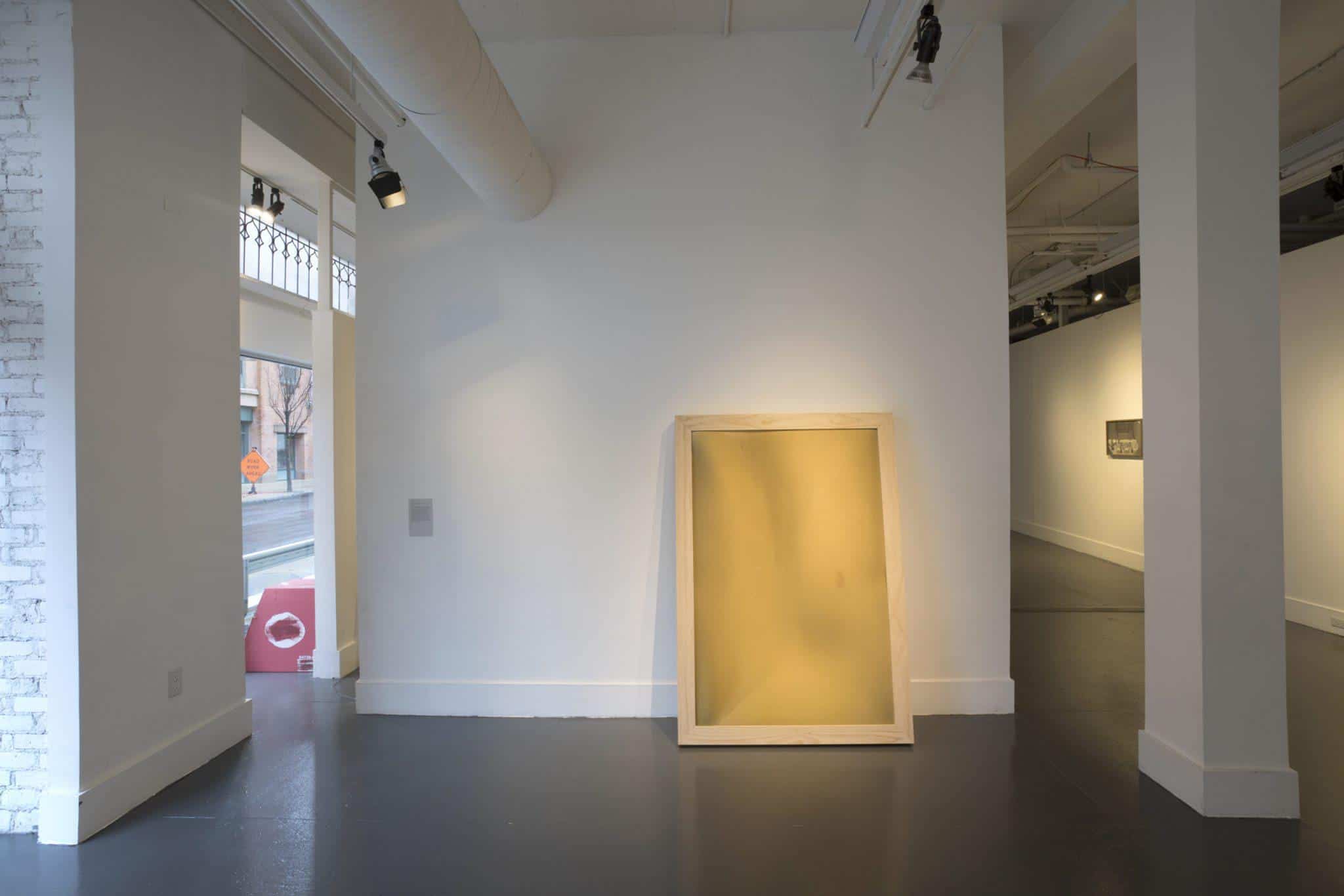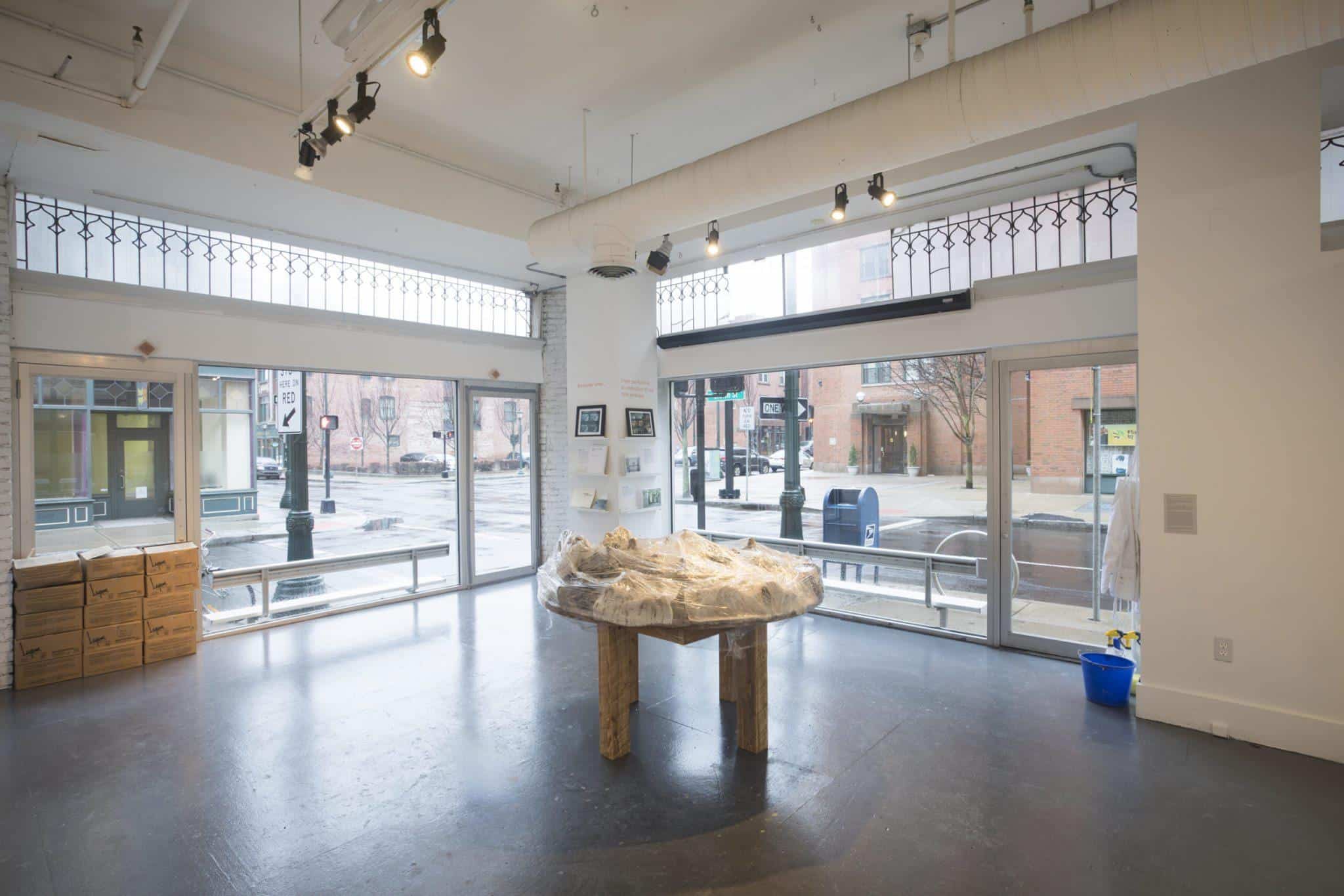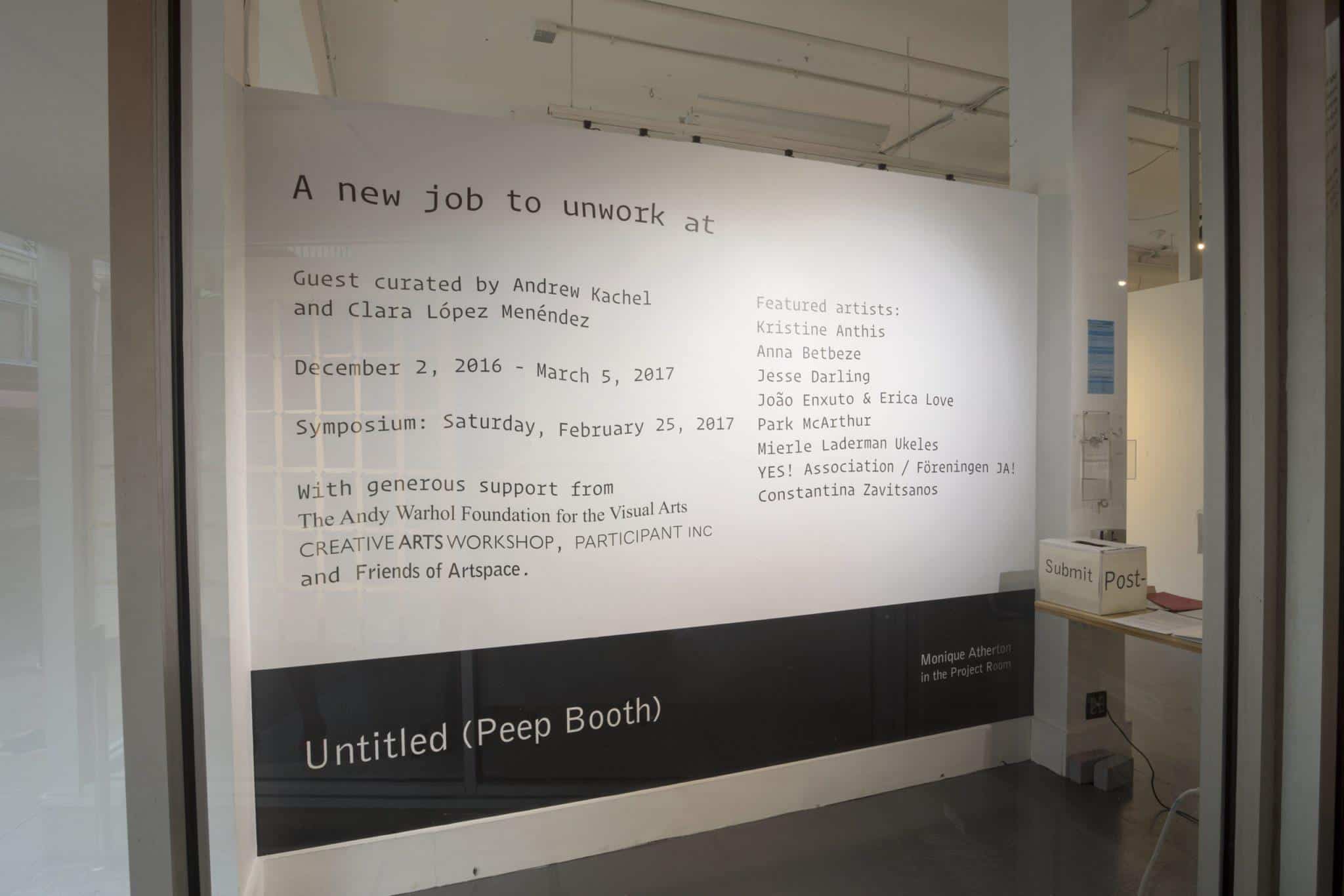
A new job to unwork at
Curators: Andrew Kachel and Clara López Menéndez
December 2, 2016—March 4, 2017
Kristine Anthis, Anna Betbeze, Jesse Darling, João Enxuto & Erica Love, Carolyn Lazard, Park McArthur, Mierle Laderman Ukeles, YES! Association / Föreningen JA!, and Constantina Zavitsanos
João Enxuto & Erica Love, “Atlanta Central Public Library (Interior 5)”, (2015), Archival inkjet print, 16×24 inches.
A new job to unwork at investigates work as a social, material, and economic process, as well as a legitimating discourse that privileges certain activities and life choices. The exhibition is the result of an ongoing research that examines work’s crucial role in shaping our identities and our experiences of the world we live in. The artists in this exhibition explore this understanding of work with regard to cultural production, its relation to broader labor conditions, and current social and political movements. In a field increasingly reliant on the figure of the precarious freelancer and characterized by individualistic entrepreneurial values, these artists look toward renewed possibilities of resistance through strategies of dialogue, dependence, and care. If on a modest scale, this project aspires to support nascent models of speculative world-making and activism through forms of artistic labor.
The title A new job to unwork at is borrowed from Valerie Solanas’s cult feminist text SCUM Manifesto (1967), which calls for women’s active and systematic dismantling of the patriarchal labor force by disobeying its laws and destroying its infrastructures. Such an orientation toward work evinces a communist utopia—“SCUM salesgirls will not charge for merchandise; SCUM telephone operators will not charge for calls”—while also acknowledging the piecemeal and ongoing nature of this struggle against dominant ideologies and structural violence: “SCUM will unwork at a job until fired, then get a new job to unwork at.”[1] Solanas’s manifesto is a node in a critical tradition that can be traced back to Marx’s analysis of estranged labor, which argued that “Labor produces not only commodities; it produces itself and the worker as a commodity.”[2] This idea is brought to bear on a contemporary socioeconomic context in Kathi Weeks’s recent feminist analysis of the concept of “work ethics,” in which she questions the indiscriminate valorization of work, and its rarely questioned investment with value. As Weeks writes, “What is perplexing is less the acceptance of the present reality that one must work to live than the willingness to live for work.”[3]
An earlier iteration of A new job to unwork at was organized at Los Angeles Contemporary Exhibitions (LACE) in spring 2016 in the shape of a research platform. A group of local artists and curators met weekly to engage with the core ideas of the project, and gave it shape through the collaborative production of a syllabus (accessible at: anewjobtounworkat.tumblr.com). For the project’s current iteration at Artspace, the curators will continue to implement this localized approach, engaging diverse New Haven constituencies to unpack issues of labor as they relate to the specific educational and social politics particular to this place.
Andrew Kachel and Clara López Menéndez are two (in)dependent curators based in New York and Los Angeles, respectively, working through issues of collaboration, labor, friendship, subjectivity and political coherence.
References:
[1] Solanas, Valerie. SCUM Manifesto. New York: self-published, 1967.
[2] Karl Marx. “Estranged Labour.” Economic & Philosophic Manuscripts of 1844.
[3] Weeks, Kathi. The Problem with Work: Feminism, Marxism, Antiwork Politics, and Postwork. Durham, NC: Duke University Press, 2011.

